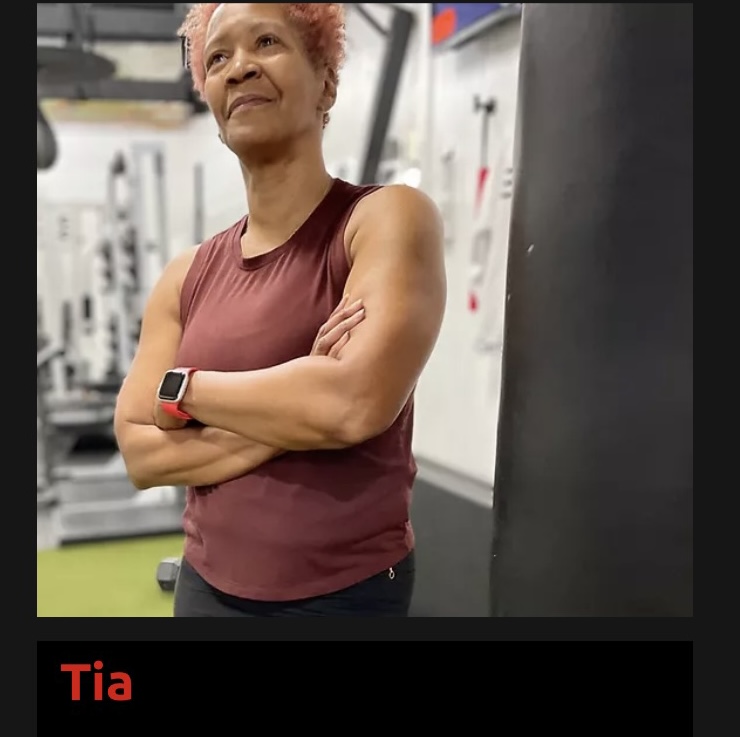Sustainable Nutrition Tips for Women
- Tia Gist-Thomas

- Oct 26, 2025
- 3 min read
As we journey through life, our nutritional needs evolve, especially after 40. I’ve found that embracing sustainable nutrition is not just about eating well today but about nurturing our bodies for the long haul. It’s about making choices that support energy, vitality, and overall wellness without feeling overwhelmed or restricted. Let’s explore practical, encouraging ways to nourish ourselves sustainably and joyfully.
Embracing Sustainable Nutrition Tips for Lasting Wellness
Sustainable nutrition means choosing foods and habits that support your health now and in the future. It’s about balance, variety, and mindful eating. Here are some key tips I’ve found helpful:
Focus on whole foods: Fresh vegetables, fruits, whole grains, nuts, seeds, and lean proteins should be the foundation of your meals. These foods provide essential nutrients and fiber that support digestion and heart health.
Prioritize plant-based meals: Incorporating more plant-based dishes can reduce inflammation and improve energy. Try swapping meat for beans, lentils, or tofu a few times a week.
Stay hydrated: Drinking enough water is crucial for metabolism, skin health, and overall function. Aim for at least 8 glasses a day, and remember herbal teas count too.
Limit processed foods and added sugars: These can cause energy crashes and contribute to chronic health issues. Instead, satisfy your sweet tooth with fresh fruit or a small piece of dark chocolate.
Listen to your body: Eat when you’re hungry and stop when you’re satisfied. Mindful eating helps prevent overeating and promotes better digestion.
By adopting these sustainable nutrition tips, you’re setting yourself up for a healthier, more vibrant life.

Practical Sustainable Nutrition Tips for Women Over 40
After 40, our metabolism slows down, and hormonal changes can affect how we process food. Here are some tailored tips to help you thrive:
Include calcium-rich foods: Bone health becomes a priority. Incorporate dairy or fortified plant milks, leafy greens, and almonds.
Boost protein intake: Protein supports muscle maintenance and repair. Include sources like chicken, fish, eggs, beans, and quinoa.
Add omega-3 fatty acids: These healthy fats support brain and heart health. Find them in fatty fish like salmon, flaxseeds, and walnuts.
Eat fiber-rich foods: Fiber helps regulate digestion and blood sugar. Whole grains, fruits, vegetables, and legumes are excellent choices.
Manage portion sizes: Smaller portions can help maintain a healthy weight without feeling deprived.
Plan meals ahead: Preparing meals in advance reduces stress and helps you stick to healthy choices.
These tips are not about strict diets but about gentle, sustainable changes that fit your lifestyle and preferences.

What is the 3 3 3 Rule Eating?
The 3 3 3 rule is a simple, mindful eating strategy that can help you maintain balance and avoid overeating. Here’s how it works:
Eat 3 meals a day: Focus on three balanced meals rather than constant snacking. This helps regulate blood sugar and hunger.
Include 3 food groups in each meal: Aim for a combination of protein, healthy fats, and carbohydrates. For example, grilled chicken (protein), avocado (healthy fat), and quinoa (carb).
Wait 3 minutes before seconds: After finishing your plate, pause for three minutes. This gives your brain time to register fullness and prevents unnecessary extra eating.
This rule encourages mindfulness and balance, making it easier to sustain healthy habits without feeling restricted.
How to Make Sustainable Nutrition a Lifestyle
Sustainability in nutrition is about creating habits that last. Here are some ways to make it part of your everyday life:
Shop seasonally and locally: Fresh, local produce is often more nutritious and supports your community.
Cook at home more often: Preparing your own meals lets you control ingredients and portion sizes.
Experiment with new recipes: Keep meals exciting by trying new vegetables, grains, or cooking methods.
Practice mindful eating: Slow down, savor each bite, and appreciate your food.
Stay consistent but flexible: It’s okay to enjoy treats and social meals. Balance is key, not perfection.
By integrating these habits, you’ll find sustainable nutrition becomes second nature.
Finding Support and Resources for Your Journey
Sometimes, having guidance makes all the difference. If you’re looking for personalized advice, consider exploring professional support. I recommend checking out nutrition tips women for tailored nutrition planning designed specifically for women over 40. This kind of support can empower you to make informed choices that fit your unique needs.
Remember, sustainable nutrition is a journey, not a destination. Celebrate your progress, be kind to yourself, and keep moving forward with confidence.
By embracing these sustainable nutrition tips, you’re investing in your health and happiness for years to come. Every small step counts, and you deserve to feel vibrant and strong at every age.



Comments